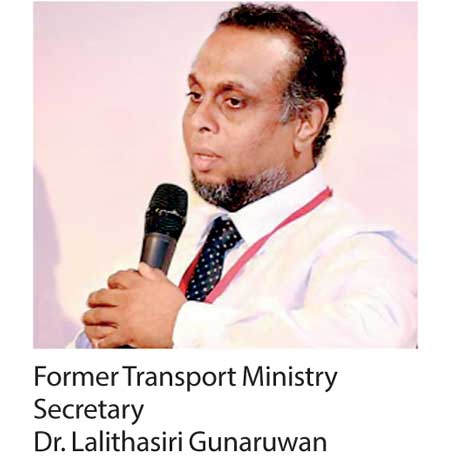Wednesday Feb 18, 2026
Wednesday Feb 18, 2026
Friday, 7 April 2017 00:00 - - {{hitsCtrl.values.hits}}
 A senior economist yesterday warned against entering into bilateral trade agreements without a sufficiently secure exit strategy, calling it a violation of people’s democratic right to change policy.
A senior economist yesterday warned against entering into bilateral trade agreements without a sufficiently secure exit strategy, calling it a violation of people’s democratic right to change policy.
Speaking at the newly launched initiative to obtain public opinion on international trade policy, senior lecturer at Colombo University and former Transport Ministry Secretary Dr. Lalithasiri Gunaruwan said that while he was on principle opposed to trade agreements as a concept, if entering into one was unavoidable for some reason, it should be done with adequate precautionary measures in place.
“A Government is appointed for a five- or six-year term. Trade agreements aren’t limited to five or six years. Does a Government have a right to hold the next elected Government obligated and bound to a trade agreement it signed during its tenure?” he asked.
The people, said Dr. Gunaruwan, should have the sovereign right to reverse any trade policy decisions.
“Even if the next Government wins the election with a two-thirds majority or even a five-sixths majority, how do we get out of [such an agreement]?” he asked.
Unchecked agreements, he reiterated, put restrictions on the people’s democratic right to change policy.
“If for some reason a trade agreement must be entered into, its duration should be limited to the tenure of the Government that signed that agreement. If that’s not possible, there needs to be at the very least an exit clause that allows the Government to leave the agreement without having to pay compensation. Without such measures no Government has a moral or legal right to enter into a trade agreement that will remain valid beyond that Government’s tenure,” he said.
The biggest problem with international trade agreements, Dr. Gunaruwan went on to say, was that they resulted in countries getting into economic liberalisation through the backdoor.
Due to the fact that liberalisation could not happen collectively, he said, it is done bilaterally. So a third country that wants to get into that country will automatically get into their own agreement - and then another country will want in, and so on and so forth. Within the span of a year, he said, all the countries in the region will have entered into their own separate agreements, naturally resulting in liberalisation.
“So the country that originally entered into the first agreement won’t have any real benefits as everyone else has signed agreements with each other,” he said.
“This is a pointless exercise and is a waste of time. It’s a trap that takes away people’s democratic rights and holds them obligated in the future,” he added.